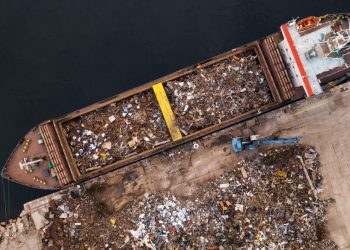The Canadian government is planning to introduce new legislation to modernize Canada’s pilotage service for commercial ships. The Government reported that the amendments will focus on strengthening the governance of pilotage authorities, strengthening enforcement provisions, streamlining fee-setting and increasing transparency.
Specifically, the Canadian Chamber of Marine Commerce (CMC) was delighted to welcome the Federal Budget plan, highlighting that the system hasn’t been renewed for 45 years.
Bruce Burrows, President of the Chamber of Marine Commerce commented
Pilotage costs in Canada are out of control and have a long history of increasing at rates that far exceed inflation. This government-mandated service has for decades been provided by monopolistic entities with little accountability or input from ship operators and their customers – despite the fact that it is paid for by industry fees – costs passed ultimately to consumers.
Generally, in ports and specific channels ships are ordered by law to have a pilot onboard to assess with navigation.
Concerning the mandatory pilotage, the 3.700 kilometre Great Lakes-St. Lawrence waterway is located within this area, as are other areas along the east and west coasts of Canada.
The reason behind it is that Canadian-licensed pilot will sail through the challenging areas where the ships’ crew may not have traveled often and know the potential hazards.
Although this is a crucial safety measure, it faces challenges on the way the service works.
The CMC states that with about 400 Canadian pilots, pilotage is managed by four federal crown corporations, each with their own set of regulations, operational procedures and management practices.
[smlsubform prepend=”GET THE SAFETY4SEA IN YOUR INBOX!” showname=false emailtxt=”” emailholder=”Enter your email address” showsubmit=true submittxt=”Submit” jsthanks=false thankyou=”Thank you for subscribing to our mailing list”]
Moreover, CMC addresses that in many pilotage zones, archaic and cumbersome rules make it almost impossible for domestic ship masters and mates to be certified to pilot their own vessels, despite having similar local knowledge and expertise and having access to state-of-the-art navigation and traffic control management systems.
Consequently, ship operators, ports and customers push a host of changes, such as making the government decide on a specific and standardised and improved certification program for domestic crews across Canada.
Concluding, CMC comments that fees, salaries and benefits paid to licensed pilots averaged CAD 376,500 (USD 282,209) per pilot in 2016, increasing 3.4 times more than CPI over the last five years. On the St. Lawrence River, for example, the hourly cost of pilotage exceeds the total cost of the entire crew of a vessel.































































